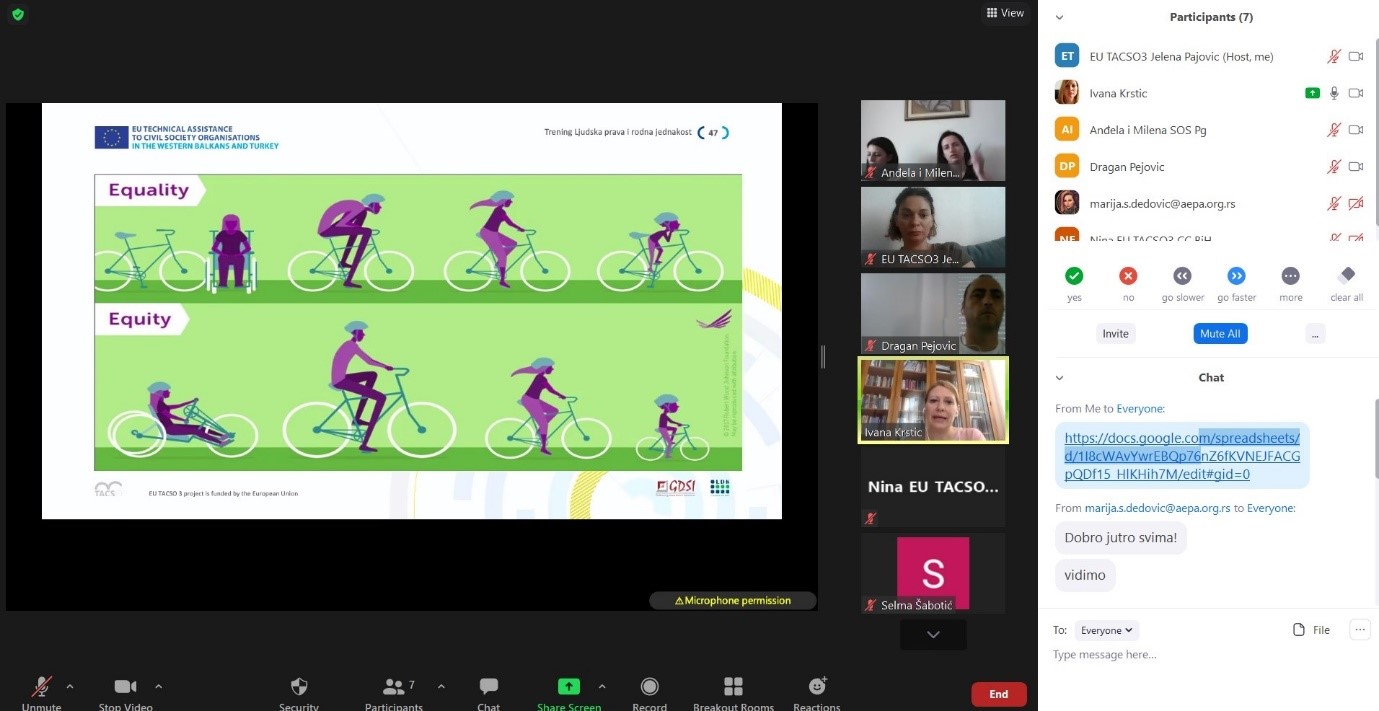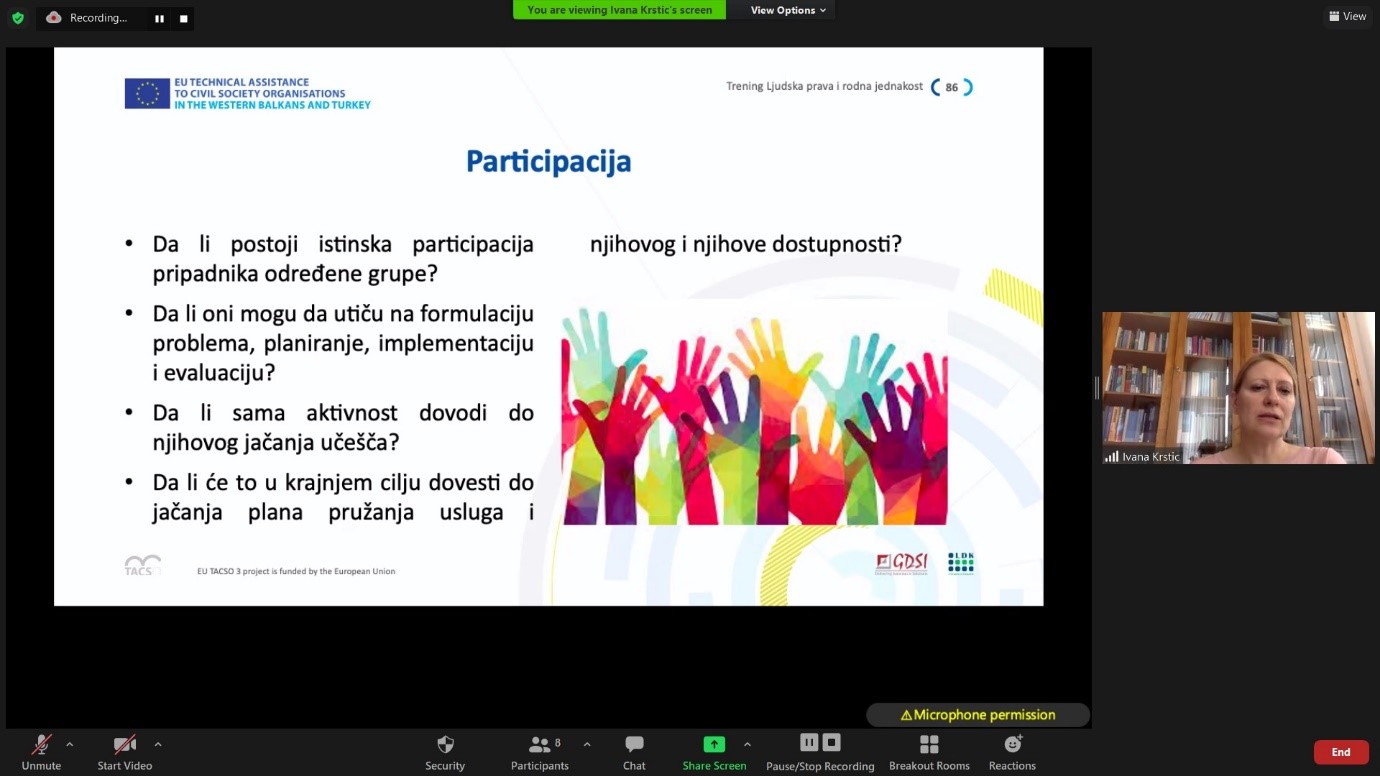
On 2, 3 and 24 June 2021, a two-day on-line training programme Human Rights Based Approach (HRBA) and Gender Equality (GE) for CSOs in Bosnia and Hercegovina, Montenegro and Serbia was organised by EU TACSO 3. The training was attended by participants representing mostly local CSOs that deal with protection of rights of vulnerable groups.
The first day of the training provided a theoretical overview of the definitions of human rights and related instruments and the role of different types of international and EU institutions and bodies in providing support, protection, and monitoring the status of human rights. Participants on the training learned what human rights are, how they are classified, characteristics of each group of rights as well as the main instruments for their protection. Through the interactive approach, they have discussed whether human rights are inalienable rights we all have when we are born, or they are something that needs to be guaranteed by a relevant authority, who can limit our rights and under which conditions.
Through practical examples and case studies, participants learned how to recognize members of specific groups of people that enjoy special protection, as well as the most common types of discrimination. Through a vibrant discussion, the attendees shared examples of derogation from international human rights standards that happened in their countries during COVID-19 pandemic. Specific session was dedicated to human rights limitations, including examples of derogations and limitation clauses.

The second day of the training was dedicated to clarifying the difference between equality and equity, different examples of respect and disrespect for gender equality. Participants discussed the main challenges for the respect of human rights and achieving gender equality in various environments (e.g. family, workspace, public participation). They reviewed different types of case studies and examples from practice and explored the opportunities of applying HRBA and GE approaches to strengthen internal development of their organization. Participants showed great appreciation for the training programme as well as for the tools and instruments they were provided with in order to integrate the HRBA approach in the work of their organization.
The training programme is consisted of regional advance training, monitoring support, basic trainings in main language groups and check-list for CSO to be published on the EU TACSO 3 project website.
